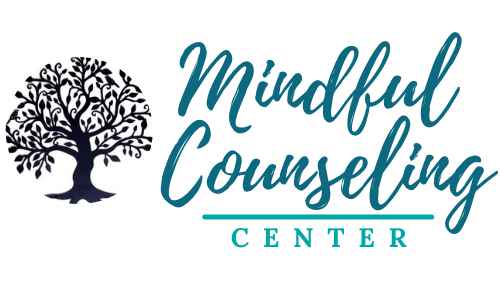Stepping into Self-Care

This is the last of three articles in this self-care blog series from the Mindful Counseling Center. The first blog and the second blog provided a basis for what self-care is and why it is so important.
What Can You Do to Mindfully Care for Yourself?
To mindfully create self-care routines that you will be likely to sustain:
- Explore and then select strategies that work for you AND you will actually do on a regular basis.
- Expect some trial and error as you explore different self-care strategies. Try them out and find out if they work for you … or not … and if you like certain strategies better than others.
- Once you are satisfied with your initial selection of self-care activities, just start! Your initial plan in no way needs to be perfect or cover all aspects of self-care (mental, emotional, physical, spiritual, etc.). To begin, it may be just one or two practices. You can review and revise it anytime. The key is to simply get started and stick with what works.
“When you recover or discover something that nourishes your soul and brings joy, care enough about yourself to make room for it in your life.” -Jean Shinoda Bolen (as cited at goodreads.com)
Examples of Self-Care Strategies
Below are just a few possibilities of the endless ways you can care for yourself. It is critical to purposefully craft a set of activities that work for you specifically, that support your well-being.
“Caring for your body, mind, and spirit is your greatest and grandest responsibility. It’s about listening to the needs of your soul and then honoring them.” –Kristi Ling (as cited at selfcarewellbeing.wordpress.com)
 Mindfulness Practices
Mindfulness Practices
You can tend to your self-care with mindfulness practices! Mindfulness is essentially the art of paying attention to present moment experiences, with openness, curiosity and the willingness to be with what is.
- Mindfulness calls for directing your focus to the present moment. When you get caught up in emotions or get lost in thoughts about the past or future (as you will, given that the mind naturally wanders), you can intentionally bring yourself back to the present.
- Mindfulness involves noticing thoughts and feelings as they arise, allowing them to be there and letting them pass by (sort of like surfing waves).
- Mindfulness helps you to pause, breathe, observe and choose a response to a situation, rather than reacting to it.
The more you practice mindfulness, the better you can get at staying present and being less reactive. For more on mindfulness, see the Mindful Counseling Center blog, Why is Mindfulness Important?
“When we are able to moment by moment realize and live into a life of truth, beauty and love, we are free and nothing can disturb the peace at the core of our lives. What would our lives be like if we were able to be fully conscious of the truth of each moment and our decisions were based on, “What is the most loving thing to do and the most loving way to be in this moment?” ―Joy Nur (as cited at goodreads.com)
 Here are a few examples of simple mindfulness activities:
Here are a few examples of simple mindfulness activities:
- Begin each day with deep breathing exercises, focusing attention on your breath and perhaps also quietly repeating a word or phrase that brings you peace or calm.
- Take time during the day for meditation, whether it be quiet, reflective alone quiet time, a visit to a beloved spot such as your garden, a park or a beach, a contemplative walk, guided talk/imagery found in a book, audio or podcast or from a live teacher, etc.
- Eliminate distractions at meals. Focus on tastes, textures and smells. Strive to fully enjoy eating.
- Actively listen when having a conversation with someone and tune into the person, instead of thinking about what you want to say.
- When you feel stressed, try this STOP practice: Stop what you are doing. Take a deep breath, and then several more. Observe what you are experiencing (what you are feeling, thinking and sensing, and what is happening around you). Proceed by choosing a reasonable response to what is happening.
The Mindful Counseling Center blog, Riding the Wave of Anxiety, offer examples of integrating mindfulness practices to help ride the wave of anxiety rather than get sucked into it.
 Other Strategies and Activities
Other Strategies and Activities
- Give yourself permission to say “no” or opt out of activities or events. Whenever possible, practice saying no to those things and activities that do not align with your plan to nourishing your care of you.
- Incorporate art, music, writing, gardening, crafts or other creative activities you enjoy into your routine. For example, if you enjoy writing, you may consider starting or ending your day by writing in a journal, noting things for which you are grateful. Routine journaling could also serve as an outlet for thoughts and feelings, to externalize them and help you let go of the stresses of the day.
- Begin and maintain routines that support you in mindfully moving throughout your day and healthy eating (meaning eating intuitively to satisfy your hunger rather than dieting). These activities can reduce stress, increase immunity, improve energy and sleep, and boost mood.
- Implement a bedtime and wake-up time that you stick to each day. Incorporate avoidance of caffeine later in the day. Also, put away the electronics at least an hour before bedtime. Establishing good sleep habits is crucial to managing stress and building good self-care.
- Establish routines that help you regularly connect with supportive people and pets in your life. You might call this strategy sustaining positive connections.
 I believe that you take the action, and THEN the insight follows—I do loving things for me, stroke my own shoulder, put myself down for a short nap, and the insight follows: that I am a wild precious woman, a human merely being, as E. E. Cummings put it, deserving of respect, tenderness, protection, delight and solidarity.” —Anne Lamott (as cited at www.inhersight.com)
I believe that you take the action, and THEN the insight follows—I do loving things for me, stroke my own shoulder, put myself down for a short nap, and the insight follows: that I am a wild precious woman, a human merely being, as E. E. Cummings put it, deserving of respect, tenderness, protection, delight and solidarity.” —Anne Lamott (as cited at www.inhersight.com)
Contact the Mindful Counseling Center at 609-377-5859 for assistance with mindful self-care. In the Self-Care Support pages of the website, you can also find material that may aid you in your self-care. For example, there is an article, Writing for Self-Care.
Article by Kristin Littel. Article content was adapted in part from West Virginia Foundation for Rape Information and Services (WVFRIS), Self-Care Module (which Littel contributed to and edited). It was also inspired by a 10% Happier meditation by J. Lingo, Growing the Good.
